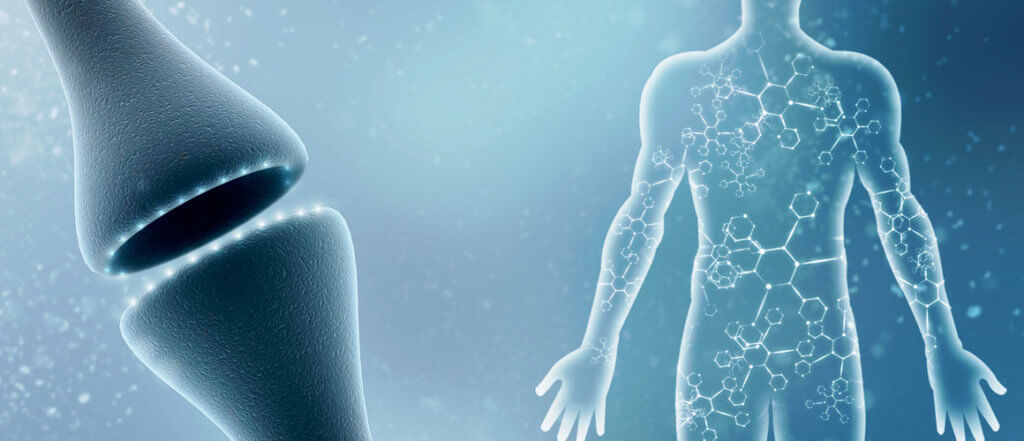The Science of Alzheimer’s
Alzheimer’s disease is one of the most significant global health threats we face today. It is an ailment that, as our population ages, is forecasted to become a worldwide epidemic. To understand the magnitude of the problem, the COVID-19 pandemic has already led to the death of over one million Americans, however, 50 times more of the currently living Americans — nearly 50 million — will die of Alzheimer’s disease if effective prevention and reversal are not implemented. Mainstream medicine would have you believe that it can’t be prevented, is untreatable, and is progressive, with most patients not surviving beyond three to eleven years post-diagnosis. With the partnership between Dr. Dale Bredesen and Apollo Health, all of that is being challenged.
Professor Dale Bredesen, an internationally recognized expert in the mechanisms of neurodegenerative diseases, disrupted the mainstream in 2014 with a peer-reviewed medical publication entitled Reversal of cognitive decline: a novel therapeutic program. In this paper, he shared his multi-step precision medicine approach that demonstrated reversal of cognitive decline in nine (out of ten) patients for the very first time. He’s continued to refine his clinical work and several years later published Reversal of cognitive decline: 100 patients in which he outlined one hundred case studies, detailing documented patient improvements, fundamentally changing the way we understand and approach cognitive decline. Additionally, he has conducted a successful peer-reviewed clinical trial and published results in 2022, providing a blueprint of hope for clinicians and patients worldwide. The study, entitled “Precision Medicine Approach to Alzheimer’s Disease: Successful Pilot Project,” is the first clinical trial in history in which, instead of pre-determining a treatment for Alzheimer’s, each patient is evaluated for the many potential contributors to cognitive decline, then the identified contributors are targeted with a personalized, precision medicine approach.
The Bredesen Protocol is based on over three decades of Dr. Bredesen’s laboratory research, resulting in hundreds of peer-reviewed publications that have uncovered the biochemical mechanisms behind the erosion of memory associated with Alzheimer’s disease. The Bredesen Protocol offered through PreCODE (for prevention) and ReCODE (for reversal) has opened the door to new approaches to prevent and treat Alzheimer’s disease.
In his over 30 years of study, Dr. Bredesen has found that Alzheimer’s results from an imbalance in the brain’s neuroplasticity signaling. As we age and are exposed to multiple assaults over time, damaging forces overtake repair forces, resulting in a downsizing of the brain’s ability and subsequent cognitive decline. Dr. Bredesen’s goal is to change your biochemistry to provide optimal conditions for your brain to thrive. He’s identified over 36 factors (metabolic derangement, poor nutrient status, lack of trophic support, exposure to viruses, etc.) that can trigger “downsizing” in the brain, all of which can be addressed by using the Bredesen Protocol designed to prevent cognitive decline and reverse the effects of subjective cognitive impairment (SCI), mild cognitive impairment (MCI), and early Alzheimer’s disease.
A Deeper Dive
Healthcare is currently undergoing a transformation from twentieth-century medicine to twenty-first-century medicine. Twentieth-century medicine relies upon small data sets for traditional diagnoses, which do not address why the illness is present. This one-size-fits-all approach has so far been unsuccessful in treating chronic illnesses, such as Alzheimer’s disease. This brings us to the transition to twenty-first-century medicine, which uses large data sets for diagnoses and helps identify changes in the human body’s network that characterize chronic illness. We can reveal the “why” for each individual and address the cause of each contributing condition in a comprehensive, personalized, pragmatic way. This transition combines the best of Western and Eastern medicine practices.
Using a twenty-first-century approach, Dr. Bredesen has found that treating Alzheimer’s is analogous to repairing a roof with 36 holes. Treating the disease requires addressing many aspects of the body at one time, as you would when repairing holes in a roof. The more holes you cover, the more success you have at fixing the problem.
The current pharmaceutical approach is focused on developing a drug to combat Alzheimer’s. If we were to create a single drug specific to Alzheimer’s, it would have to perform so many different functions that it would be unlike any drug ever developed. Therefore, it is not surprising that there have been over 400 failed clinical trials using a monotherapeutic (single drug) approach. While the single-pill approach may not be a viable option, we can address the underlying problem and patch 36 factors or holes as we referred to them in our earlier analogy by knowing the characteristics of the disease. This approach is the cornerstone of the Bredesen Protocol.
To understand Alzheimer’s and why neurons in the brain degenerate, we need to look at it from a cellular level. Higher organisms (including humans) rely on four developmental processes:
- Proliferation
- Differentiation
- Migration
- Integration
We also rely on these processes for the repair and regeneration of cells and neurons. This cyclic routine creates a lifelong need for balance among these processes. When this balance is disturbed, it can result in the development of diseases such as cancer or Alzheimer’s. In cancer’s case, an imbalance towards an increase in the proliferation and survival against programmed cell death leads to the development and spread of cancer cells in the body.

On the other hand, Alzheimer’s occurs when there is an imbalance in the migration and integration processes critically involved in neuroplasticity — a term that refers to changes in the brain, such as the making and breaking of connections between neurons. These connections are referred to as synapses. The amplification of Alzheimer’s occurs at the molecular species level in the form of prionic loops, which are created by the interaction of various molecules with amyloid precursor protein (APP). Genetic and biochemical studies have revealed that APP is central to Alzheimer’s disease.
APP acts as a mediator in the formation of synaptic connections and synaptic organization. In Alzheimer’s, there is an imbalance among these two processes, which results in greater synaptoclastic activity (synapse-removing) than synaptoblastic activity (synapse-producing). This is to say; there is more breakdown occurring in a synapse through neuroretraction and synaptic reorganization than there is in formation, which results in an overall loss of synapses.
APP is a master switch for synapse formation and maintenance: when there are sufficient growth factors, hormones, nutrients, and energy, APP is cleaved by proteases (molecular scissors) to produce two synaptoblastic peptides, supporting synapse production and maintenance. On the other hand, when insults occur such as infections, toxins, or inflammation, APP is cleaved at three different sites to produce four synaptoclastic peptides, which mediate neurite collapse and synapse loss while also fighting the infections themselves. Thus there is an analogy to COVID-19: with the viral insult of SARS-CoV-2, we pulled back, sheltering in place and socially distancing, but this protection led to a recession; similarly, when the brain is exposed to viruses or bacteria or other insults, it fights these infections in part with the very amyloid we associate with Alzheimer’s disease, but this also involves a “recession,” a network downsizing in the brain. Thus for optimal treatment, it is critical to identify the various contributors to this downsizing, and target those with a precision medicine protocol.
Interacting with and covering many of the factors discovered thus far has led to unprecedented results.

The Bredesen Protocol Offered Through PreCODE and ReCODE
The combination of large datasets, genetic data, the underlying biochemistry, and the concept of twenty-first-century health has contributed to the formation of the Bredesen Protocol — the first proven method to prevent and reverse the effects of early Alzheimer’s disease. The partnership between Dr. Bredesen and Apollo Health has leveraged the utilization of accessibility to all of these factors through the creation of a software algorithm that receives participant data through health history collection, medical questionnaires, laboratory testing, and cognitive assessments that results in a unique personalized treatment plan to both prevent and reverse symptoms of cognitive decline, broadly disseminating Dr. Bredesen’s expertise. Additionally, Apollo Health has created a wealth of resources to aid in implementation of the Bredesen protocol, including trained practitioners, support communities, individual and group coaching, a multitude of educational tools, a mobile app, and much more. See PreCODE for prevention and ReCODE for reversal for additional details.
Physicians and other health professionals who are interested in joining our effort to reduce the global burden of dementia by providing the Bredesen protocol are welcome to enroll for ReCODE 2.0 Training that is available now.

